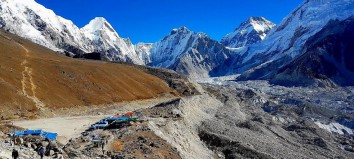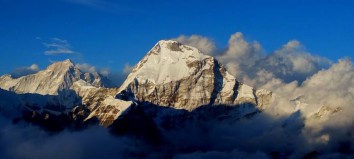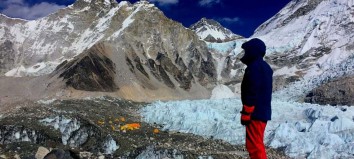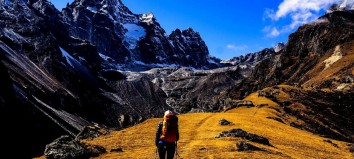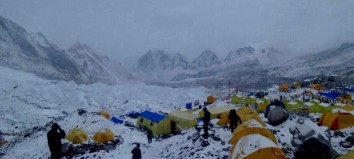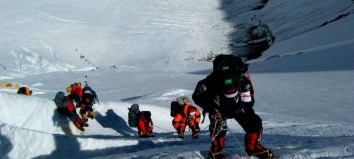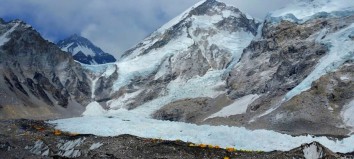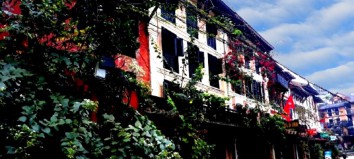Porters in Nepals himalaya
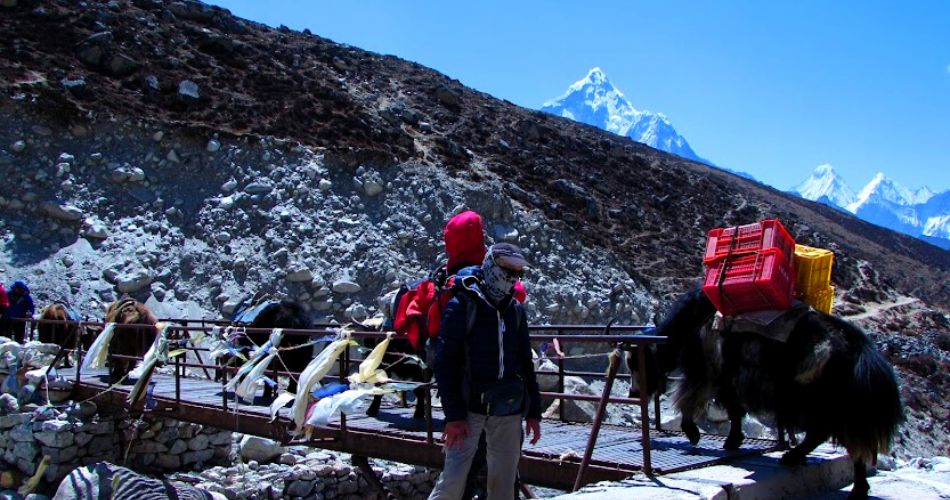
Porters are an integral part of trekking and mountaineering expeditions in Nepal's Himalayas. These hardworking individuals play a crucial role in carrying the necessary supplies and equipment that are needed for successful expeditions.
Porters in Nepal's Himalayas typically come from rural villages and are often farmers or herders. They are known for their physical endurance, strength, and resilience in challenging mountain environments.
In addition to carrying heavy loads, porters in Nepal's Himalayas also serve as valuable guides and assistants to trekkers and mountaineers. They are often familiar with the local terrain and can provide important insights on weather patterns, trail conditions, and other critical factors that can impact an expedition's success.
Despite their importance to the industry, porters in Nepal's Himalayas have historically faced many challenges, including poor working conditions, low wages, and inadequate access to healthcare and other basic services. In recent years, efforts have been made to improve working conditions and provide better support for porters in the region, including the establishment of porter welfare programs and guidelines for fair labor practices.
What are the benefits of hiring porters for trekking in Nepal's Himalayas?
There are several benefits to hiring porters for trekking in Nepal's Himalayas. Here are some of the most significant:
- Increased Safety: Trekking in Nepal's Himalayas can be challenging, especially when carrying heavy loads. Hiring a porter can help to reduce the risk of injury or accidents, allowing trekkers to focus on enjoying the experience.
- Convenience: Porters can carry all of the necessary equipment and supplies, including food, water, and camping gear, leaving trekkers free to enjoy the scenery and focus on their own physical performance.
- Support for Local Communities: Hiring porters helps to support the local economy, providing income for porters and their families. This can be especially important in remote rural areas where other employment opportunities may be scarce.
- Cultural Exchange: Porters often come from the same communities that trekkers are passing through, providing an opportunity for cultural exchange and learning about local customs and traditions.
- Environmental Sustainability: Using porters to carry heavy loads helps to reduce the impact of trekking on the fragile mountain environment, as it reduces the need for vehicles and other transport that can damage the trails and surrounding ecosystem.
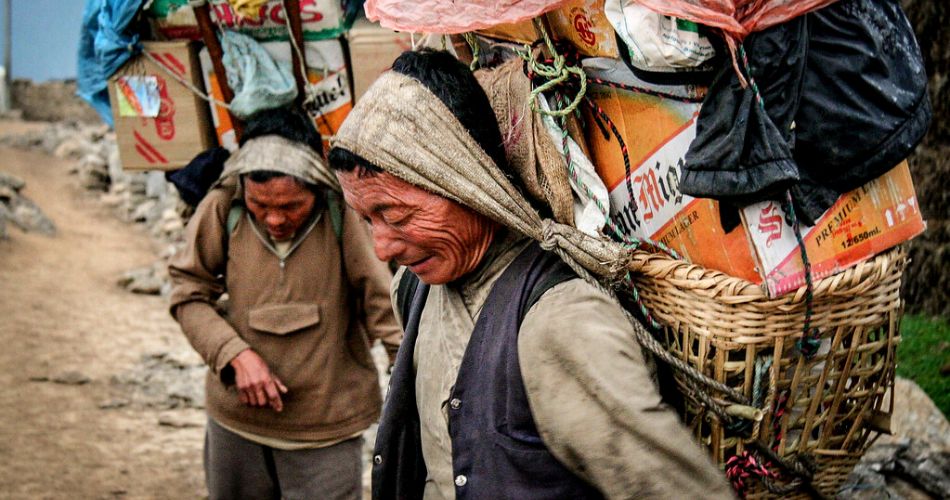
In summary, hiring porters for trekking in Nepal's Himalayas provides a range of benefits for both trekkers and local communities, making it a worthwhile investment for those seeking a safe, convenient, and culturally enriching adventure.
Tips for Hiring a Porter in Nepal for Your Trekking Adventure
If you're planning a trekking adventure in Nepal's Himalayas and considering hiring a porter to carry your gear, here are some tips to help you find a reliable and trustworthy porter:
- Use a Trekking Agency: Consider hiring a trekking agency to help you find a porter. These agencies can provide valuable support in arranging permits, transportation, and equipment, and can help you find experienced and reliable porters.
- Ask for Recommendations: Ask other trekkers or locals for recommendations for porters or trekking agencies that they have used in the past. Online forums or travel groups can also be a great resource for finding reputable porters.
- Check Credentials: Make sure your porter has the necessary permits and insurance to work as a porter in Nepal. Ask for copies of their documents, and verify them with the relevant authorities if possible.
- Discuss Rates and Expectations: Be clear about the rates and expectations upfront, including how much weight the porter will carry, how long the trek will take, and any other relevant details. Agree on a fair price and a clear itinerary before setting off.
- Respect the Porter's Rights and Dignity: Treat your porter with respect and dignity, and ensure that they have adequate food, water, and shelter during the trek. Avoid overloading them with too much weight, and be mindful of their physical limitations and capabilities.
By following these tips, you can help ensure a safe and enjoyable trekking experience in Nepal's Himalayas, while also supporting the local economy and respecting the rights and dignity of your porter.
The Distinction Between Porters and Guides in Trekking Adventures
When planning a trekking adventure in Nepal's Himalayas, it's important to understand the distinction between porters and guides. While both play crucial roles in the success of a trek, they have distinct responsibilities and duties.
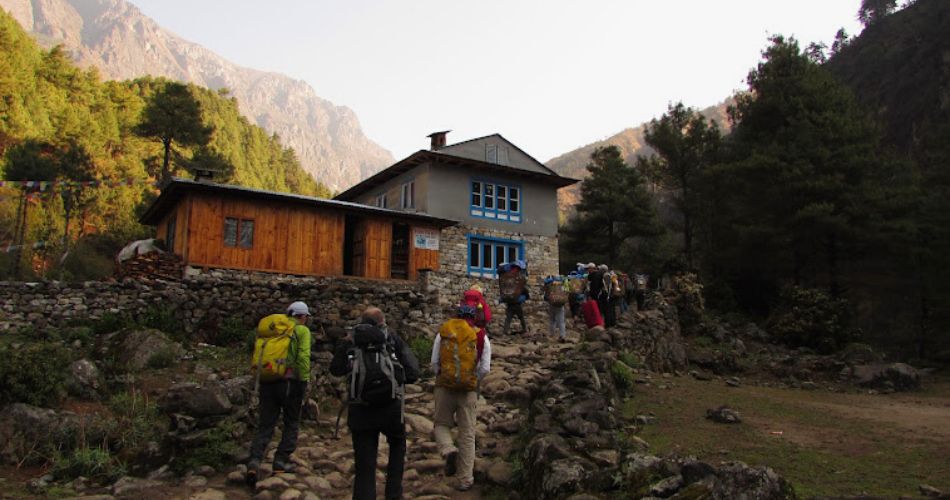
Porters are responsible for carrying the necessary equipment and supplies for the trek. They typically carry heavy loads on their backs, ranging from food and water to camping gear and personal belongings. Porters are skilled at navigating the mountain terrain and can provide valuable insights into local customs and traditions. However, they are not trained to provide trekking advice or assistance beyond their role as porters.
Guides, on the other hand, are trained professionals who are responsible for leading trekkers on the trail. They are knowledgeable about the local geography, culture, and environment, and can provide advice and assistance on trekking techniques, safety, and health. Guides are also responsible for coordinating with porters and other support staff, ensuring that the trek runs smoothly and safely.
While it's possible to hire a porter who also has some guiding experience, it's important to recognize the distinction between the two roles. Hiring a porter does not necessarily mean that you have a guide, and relying solely on porters for advice or assistance beyond their role as porters can be risky. If you're planning a trekking adventure in Nepal's Himalayas, it's recommended to hire both a porter and a guide to ensure a safe and enjoyable experience.
What is the average salary of a porter in Nepal?
The average salary of a porter in Nepal varies depending on several factors such as experience, location, and season. However, according to the guidelines issued by the Trekking Agencies' Association of Nepal (TAAN), the minimum wage for a porter working in the Himalayas is NPR 1,000 per day (approximately USD 8.5 as of February 2023). This wage includes the porter's salary, meals, accommodation, and insurance.
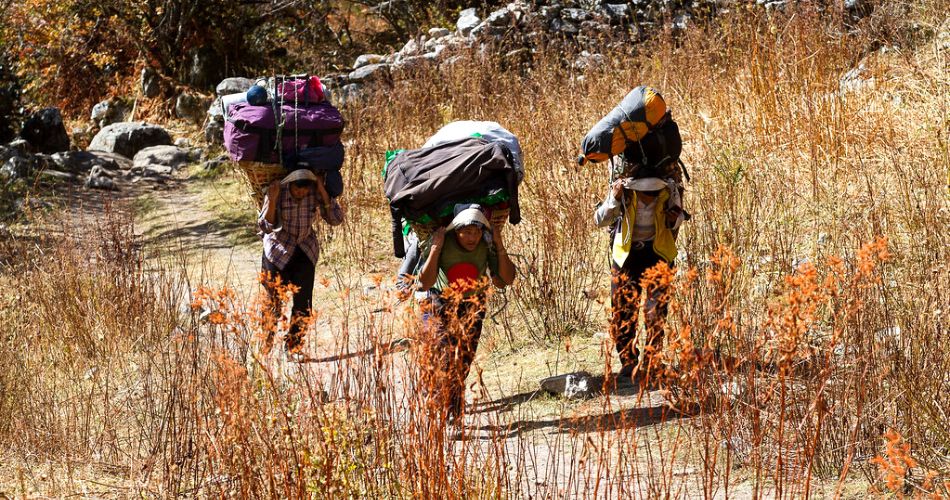
It's worth noting that some porters may earn more than the minimum wage, particularly those with experience and specialized skills such as language proficiency or technical climbing abilities. In addition, some trekkers choose to tip their porters at the end of the trek, as a gesture of appreciation for their hard work and dedication. The amount of the tip is up to the trekker's discretion and can vary depending on the length and difficulty of the trek, the quality of service provided, and other factors.
What is the average age of porters? How many years are they eligible to work?
The average age of porters in Nepal varies, but it's not uncommon for porters to start working in their late teens or early twenties. However, there is no official age limit for porters, and many continue to work well into their fifties or beyond.
That said, the Trekking Agencies' Association of Nepal (TAAN) recommends that porters not be hired under the age of 16, and that they not be required to carry loads that exceed their physical capabilities. TAAN also recommends that porters be given regular breaks and rest days to help prevent fatigue and injury.
In terms of how many years porters are eligible to work, there is no official limit, but the Nepal Mountaineering Association (NMA) recommends that porters not work continuously for more than six months in a year, to allow for sufficient rest and recovery time. Porters who work year-round may be at risk of exhaustion, illness, or injury, and may not be able to provide the same level of service as those who take regular breaks. Overall, it's important to ensure that porters are treated fairly and with respect, and that their physical and mental well-being is prioritized.
Are the porters insured by trekking companies in Nepal or not?
Yes, trekking companies in Nepal are required by law to provide insurance coverage for their porters. The Trekking Agencies' Association of Nepal (TAAN) and the Nepal Mountaineering Association (NMA) both require that porters be insured for medical expenses, emergency rescue and evacuation, and accidental death and dismemberment.
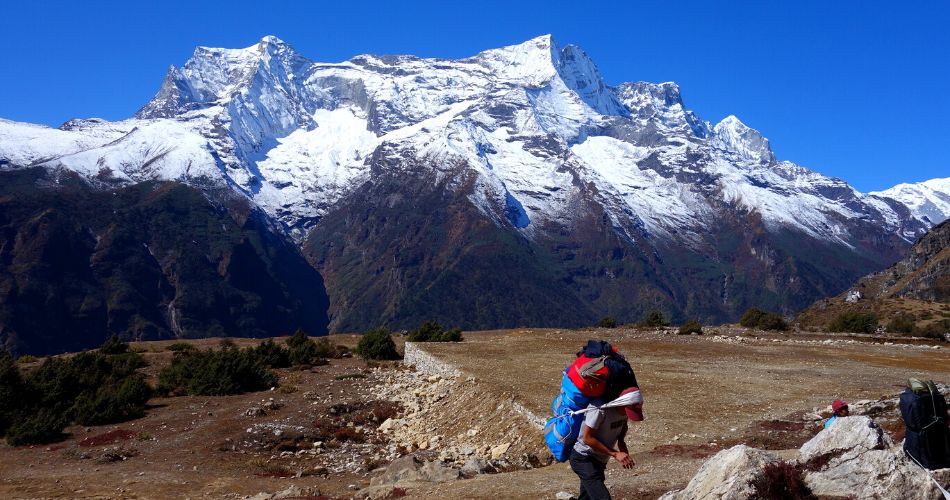
However, it's important to note that the level of coverage can vary depending on the company and the specific trek. Some companies may provide more comprehensive coverage than others, and some may require additional fees or deposits to cover insurance costs. It's important for trekkers to ask their trekking company about the level of insurance coverage provided for porters, and to ensure that the coverage is adequate for their needs.
Additionally, it's a good idea for trekkers to purchase their own travel insurance that includes coverage for medical expenses, emergency evacuation, and other potential risks or emergencies. This can provide an added layer of protection and peace of mind for both the trekker and the porter. Overall, it's important to prioritize the safety and well-being of all participants in a trekking adventure, including porters.
